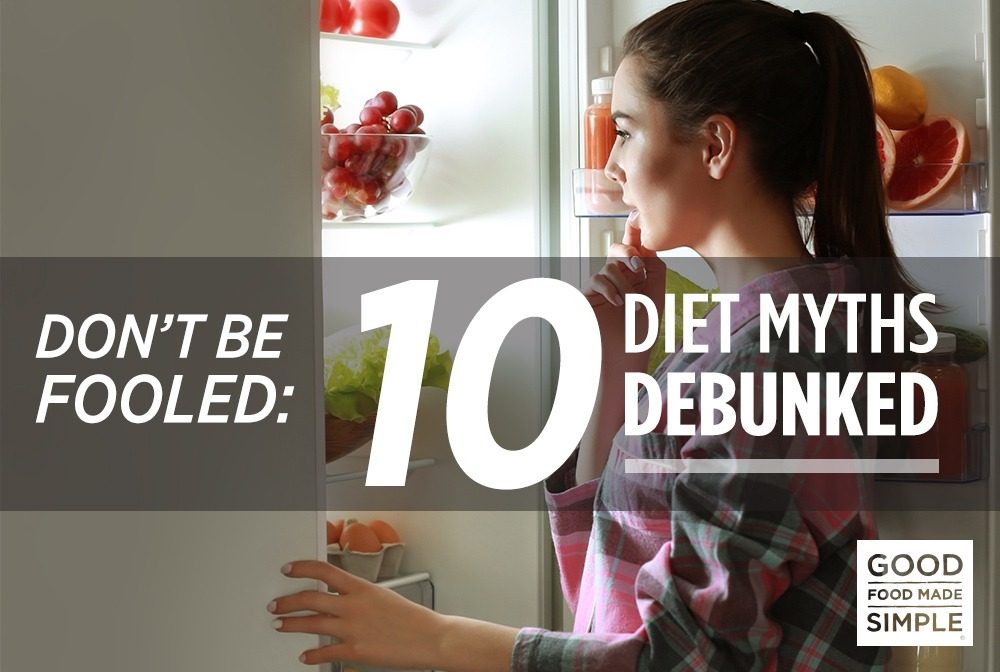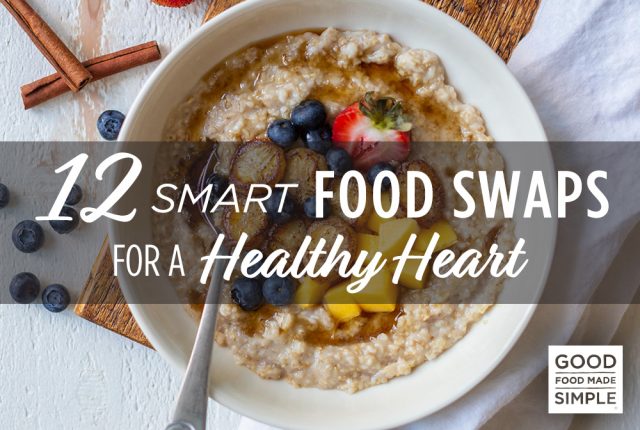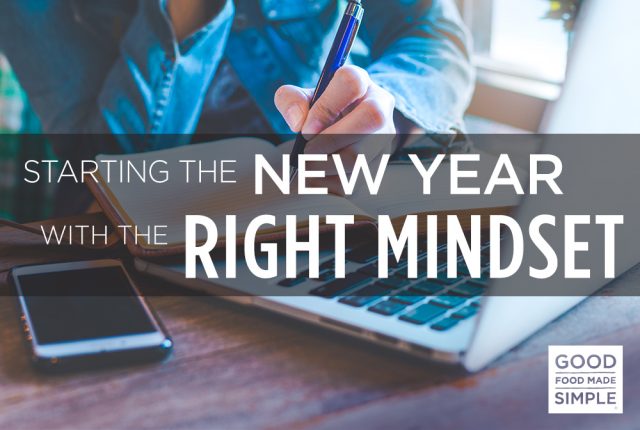
25 Active Date Ideas
While going on dates can certainly be fun, a typical night out with a romantic partner often ends up being focused on eating ...
read more
As we ring in the new year, we more often than not are also ringing in a new approach to healthy eating. After all those holiday cookies and cocktails, it’s easy to get a little bit off track and use the new year as a way to maintain or lose a little weight.
To do this, many people cling to a specific diet or get stuck on popular sayings they’ve heard about the best ways to lose weight. We’re here to debunk those myths, and explain the more beneficial ways you can make habit changes to stay healthy, lean, and feeling good, both in mind and body.
Carbs are bad
This one is big. The most important thing to remember is that not all carbs are created equal. Whole grains, such as quinoa, brown rice, and whole-wheat bread, have more concentrated sources of fiber and other important nutrients the body needs, like B vitamins, iron, folate, and magnesium. In general, whole grain carbohydrates are good for you, and should have a seat at the dinner table. Refined and enriched grains, like white bread, pasta, and white flour tortillas aren’t the best choice you can make, but they won’t — and I repeat — won’t be the cause of your weight gain. As long as you eat in moderation, and don’t have a huge bowl of pasta every night, a simple carb every now and then won’t do damage to your diet.
Low fat and fat-free are healthier options
Despite somewhat decent intentions, the idea of making food low-fat or fat-free has actually caused more harm than help. First of all: fat isn’t bad for you. And second of all, taking the fat out of foods usually means that things like sugar are added, which stimulates insulin release, facilitates the storage of fat, and encourages inflammation throughout the body. Plus, the reduction or removal of fat means your protein uptake will take a downward tumble, and the food you’re eating won’t feel satisfying. The result? You’ll probably end up feeling hungry a few minutes later and will need more calories to satiate your growling stomach.
Always look for sugar-free
While sugar isn’t great for you, sugar-free foods are often filled with chemicals. While there’s a lot of controversies around artificial sweeteners, the FDA has approved five of them: saccharin, acesulfame, aspartame, neotame, and sucralose. However, some health experts say people who consume sugar-free foods may end up simply replacing those lost calories through other food items. Others say that artificial sweeteners just make our sugar craving more intense. All in all, you can’t go wrong putting whole and natural foods in your body, so a little natural sugar — like honey or maple syrup — is more healthful than a fake sugar chemical.
Eating late at night will make you gain weight
The thing to note here is that people often think late-night eating leads to weight gain because what people consume late at night is often high in calories, sugar, and fat. (Midnight pint of ice-cream, anyone?)Yet if you have a light snack, like a bowl of popcorn or a piece of fruit, your healthy diet isn’t thrown out the window. If you’re hungry late at night, don’t deprive yourself. Just focus on making healthier choices.
If you’re overweight, you’re unhealthy
This is a tricky topic that could warrant an article (or two) on its own. But the short answer is that science has found that overweight people aren’t necessarily at greater risk for certain health conditions. One study found that people who are overweight have a fifty-fifty chance of having high cholesterol, high blood pressure, or elevated blood sugar levels, compared to normal-weight folks who had a 25% chance. In the simplest terms, there is a myriad of factors that lead to someone being overweight, and that doesn’t automatically peg someone as being unhealthy. Remember: health is holistic, and it’s not just what you look like or what number you see on a scale.
Fast to lose weight quickly
While intermittent fasting has become a science-backed way to lose some weight, it can easily be taken too far, or become an unreliable way to lose pounds and keep them off. Skipping meals is not the answer; you’ll just end up more hungry and will make up those calories later in the day. While the number on the scale might dip a bit if you fast, you’ll quickly gain the weight back one you start eating normally. In general, fasting can become an unhealthy habit, and the definition of good health should never include restricting yourself from calories, nutrients, and vitamins that give you energy and help you thrive.
Eat small meals to boost metabolism
This one is heard quite often in the diet world. Yet research shows that meal frequency doesn’t actually have an effect on metabolic rate. There have been numerous studies that compare eating more smaller versus fewer bigger meals, and all the results found no impact on fat loss or metabolism. In other words, focus on how many calories you’re consuming in total, versus when you’re actually consuming them.
You can eat whatever as long as you exercise
You can’t outrun an unhealthy diet. While exercise is a key component to good health, think about it like this: If you burn 400 calories on a run, you can easily make that up by indulging in a post-workout croissant. So if you’re an avid exerciser, don’t let that be an excuse to eat anything you want at any time of the day or night. Those calories will quickly add up.
Vegetarians can’t get enough protein
While eating a vegetarian or vegan diet isn’t necessarily healthier, some people are interested in it for ethical and environmental reasons. However, many fear they can’t get enough protein if they don’t eat meat. Fear not: You can get substantial amounts of protein through other sources, like beans, legumes, nuts, seeds, eggs, soymilk, whole grains, and even spinach. The meat-free protein list goes on and on — we promise.
Drinking water will lead to weight loss
Yes, staying hydrated is an important part of a healthy diet. No, stuffing yourself full of H20 will not lead to rapid fat loss. The critical differentiator here is that drinking water won’t specifically trigger weight loss. It can aid in the process, however, since often times we think we’re hungry when we’re actually just thirsty. Keeping a water bottle handle helps to ensure you can drink water regularly and not get phantom hunger pains when you don’t necessarily need to eat between meals.
Now that we’ve debunked these diet myths, you might be wondering how does one lose weight the healthy way? The short answer is that losing weight is a holistic process and includes changing habits around food, exercise, sleep, and stress. By focusing on eating whole, fresh foods (ditch packaged food!), watching your meal portions and snacking-sessions between meals, getting enough sleep, exercising regularly, and regulating stress levels, you will be at a way healthier weight than if you live by any of those diet myths you might have heard.

25 Active Date Ideas
While going on dates can certainly be fun, a typical night out with a romantic partner often ends up being focused on eating ...
read more
12 Smart Food Swaps For A Healthy Heart
February is American Heart Month, and one of the best ways to maintain good heart health is to watch what you eat. Instead of...
read more
Starting the New Year With the ‘Right’ Mindset
With the holiday finally over and the new year upon us, I’d be shocked if you haven’t thought about New Year's Resoluti...
read more